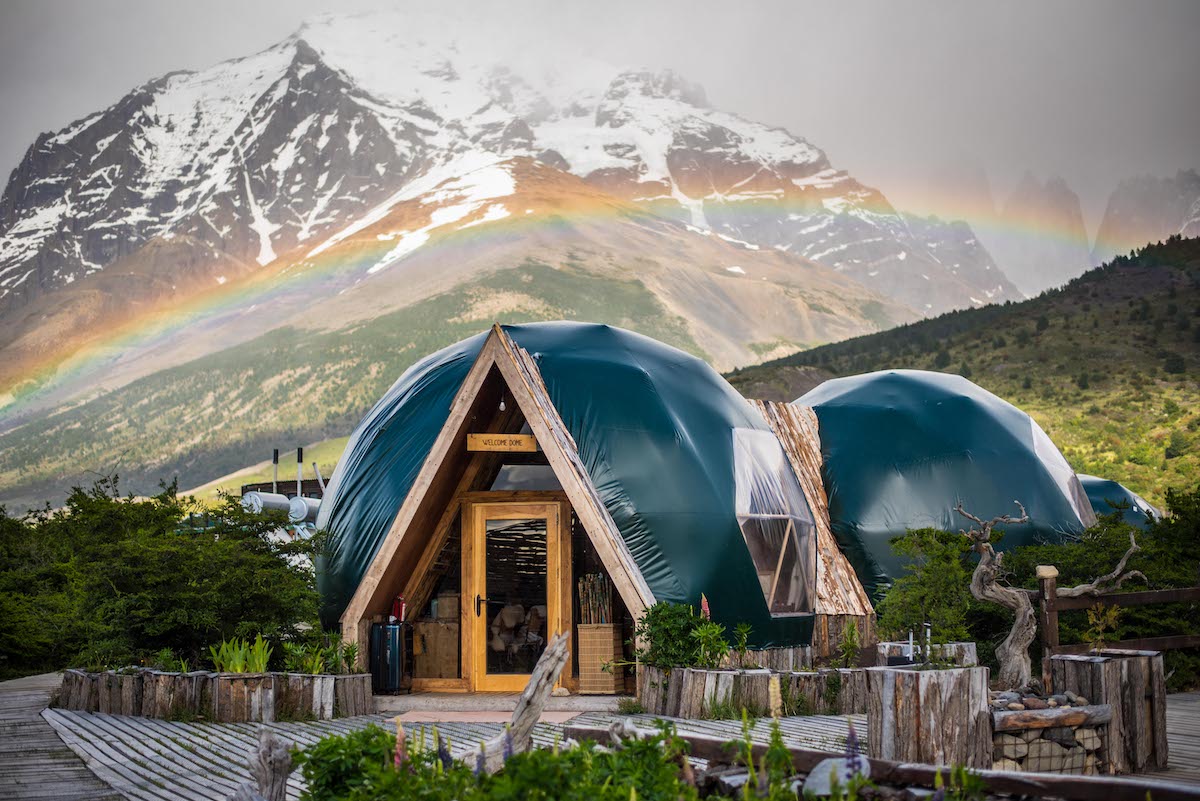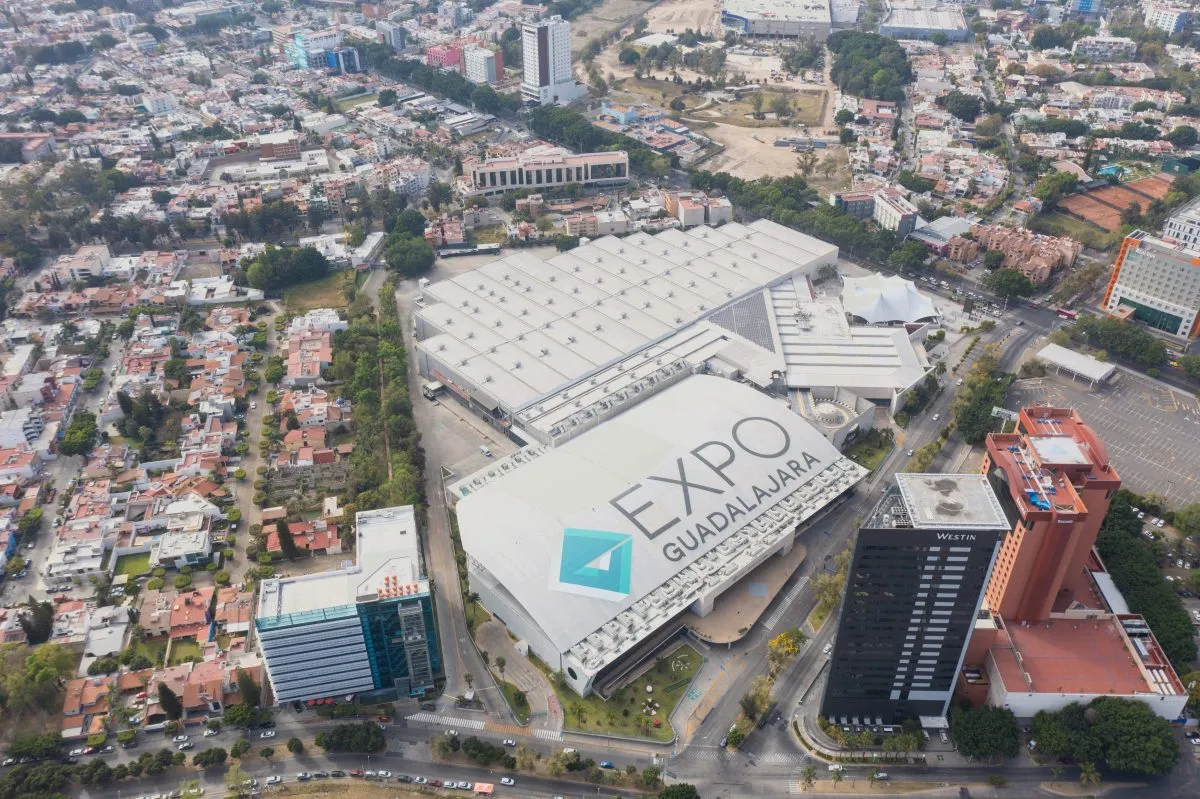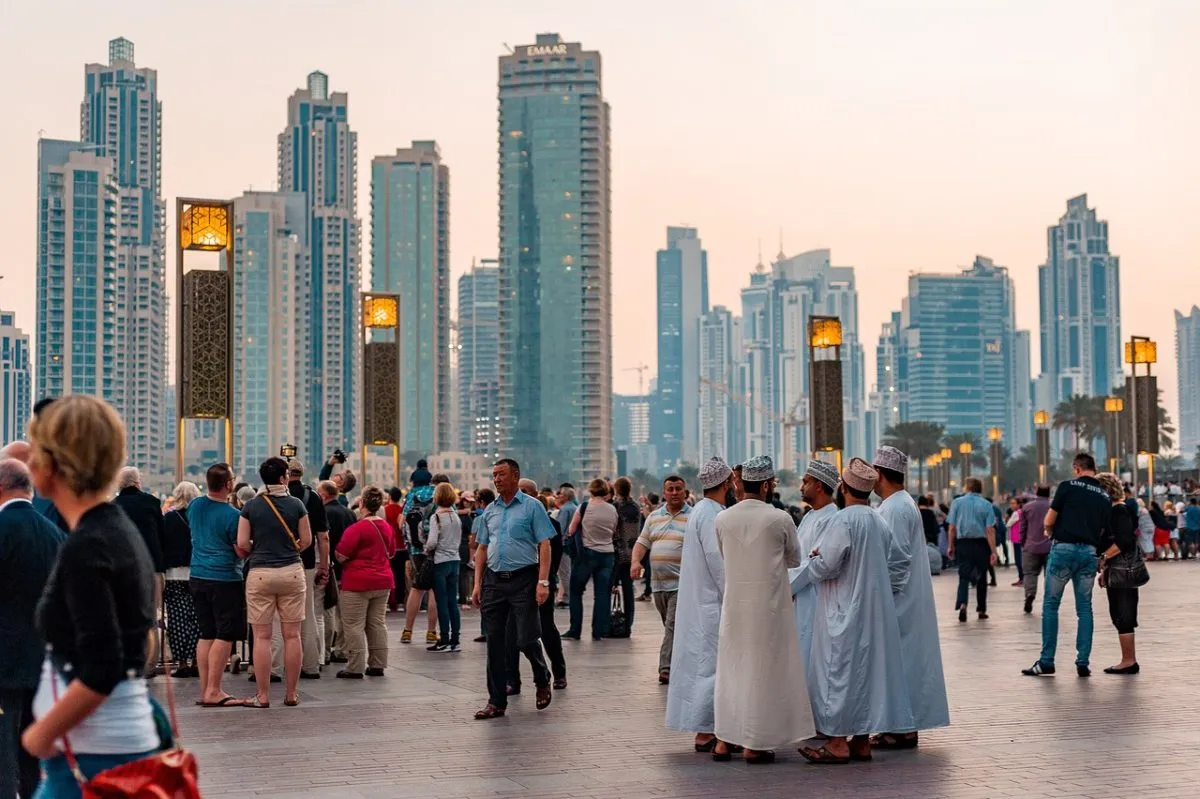4 Stunning Small Event Venues Following the Call of Nature
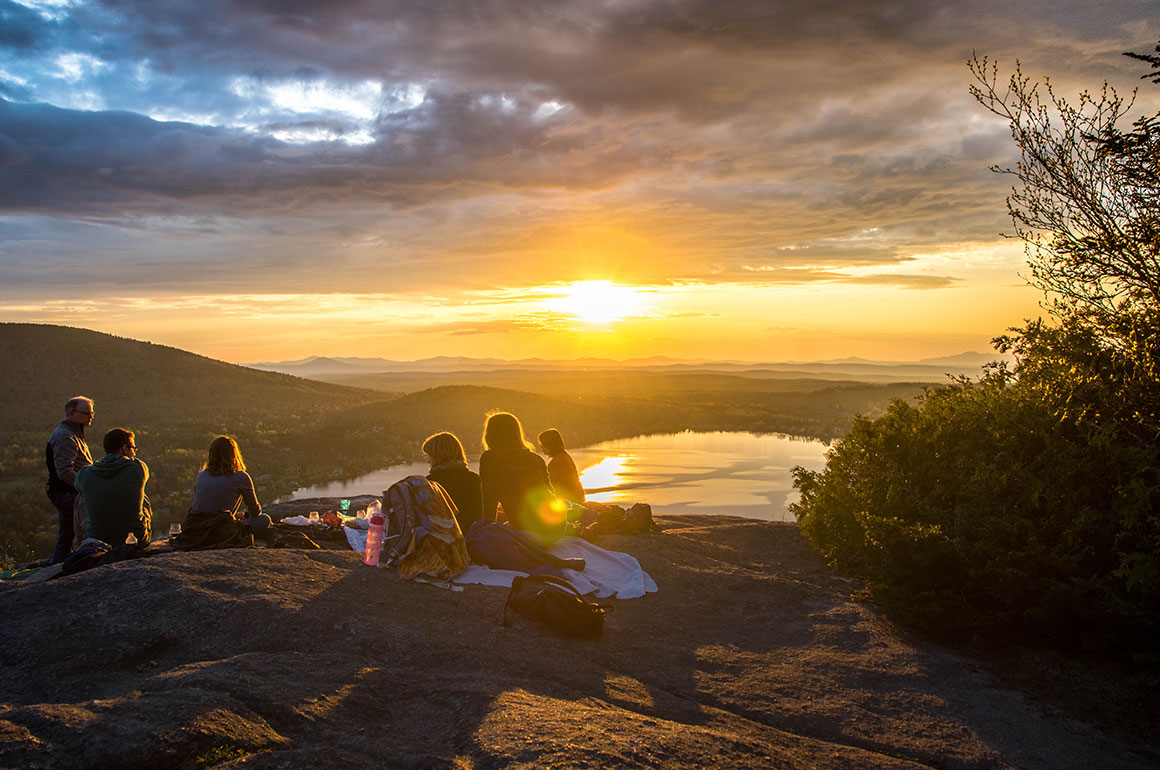
Skift Take
Interest in micro-events, small events ranging from 10 to 100 participants, has increased over the past few months due to pandemic-induced event restrictions and the rise in remote working environments. This type of event may also be attracting more attention because they are budget-friendly and sustainable while providing hyper-focused, authentic experiences.
Choosing a suitable venue that speaks to an event vision while meeting its objectives is one of the most crucial steps to organizing a micro-event. Smaller venues or settings used for micro-events may not have all the bells and whistles of large conference venues, but they can deliver something different and out-of-the-ordinary. They allow planners to step away from generic environments, utilizing virtually any setting, from art studios to bespoke conference centers or city rooftops.
Here, we explore four unique nature-based venues to host your next micro-event and why they work.
Nature Provides the Perfect Backdrop
While a meeting in the woods or team lunch on top of a mountain sound great in theory, if planners don't work with an appropriate venue or service provider, they could face extra challenges, including minimal connectivity, mismanaged logistics, and safety concerns.
Nature as a backdrop gives event planners lots of versatility and room to flex their creative muscles regarding experience design. Further, studies have shown that incorporating natural elements into environments can impact people's wellbeing and mental health while increasing creativity and productivity. Considering this, the effects of hosting a nature-based micro-event coupled with valuable content and enhanced interpersonal connection could be hugely successful.
Although many unique spaces exist globally, we feature four venues that highlight the diversity, customizable offerings, and bucket-list experiences these places can provide.
1. TreeHotel
Located in Sweden, Treehotel offers a modern space intertwined with local comfort and ecological values, set against the backdrop of unique, secluded rooms in the trees.
The hotel allows planners to craft a micro-event that showcases breathtaking scenery and architectural design; the local cuisine and numerous activities are an added layer to enhance the overall event experience.
The restaurant is a focal point for Treehotel, inviting attendees to connect over local, seasonal produce transformed into food that tells a story with each dish — something that the chefs are happy to divulge — like fresh berries, reindeer meat, or wild moose. Meals can be taken either in the restaurant itself or turned into an immersive team activity like an "ice-dining" candle-lit experience or a three-course feast in a tree.
Activities are seasonal and include treasure hunts among wild flavors (hello, team building); moose safaris; yoga on ice with sauna, meditation, and a snow bath; forest running, snow walks, and skiing; visiting the forest Sami and the Arctic Circle; and snowmobile tours of the Northern Lights.
The Treehotel will soon offer a new space that uniquely immerses visitors in the local nature and bird population. Opening to visitors in May, the Biosphere is designed by the renowned Danish BIG, Bjarke Ingels Group.
2. Emboo River
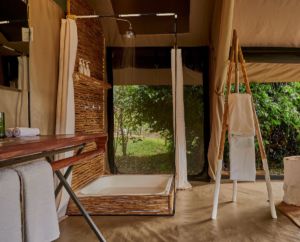
Located in the Mara National Reserve, Kenya, Emboo River is the first luxury carbon-neutral lodge on the African continent and can host micro-events for up to 20 people.
While Emboo River offers meeting spaces and Wi-Fi, what makes this venue truly unique is its connection to nature. The lodge has gone to great lengths to help preserve the area's ecosystem while still offering rare, immersive, and educational experiences to guests.
Visitors can explore the Maasai Mara during bushwalks, visit a Maasai Village to learn about cultural traditions and history, discover the behind-the-scenes of an eco-lodge through eco-tours and partake in tree planting offset travel-related carbon emissions. Other sustainable onsite projects include full solar power, biogas energy for cooking, and lagoons with local plants that filter wastewater, so no drop goes to waste.
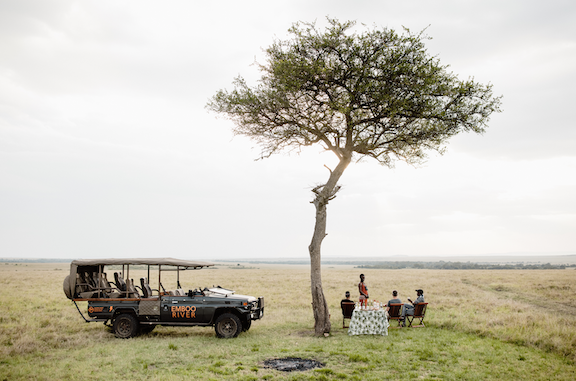
The venue's commitment to sustainability also extends to its fleet of electric safari vehicles that allow visitors to get up close and personal with nature while reducing the environmental impact.
3. Nature's Boardroom
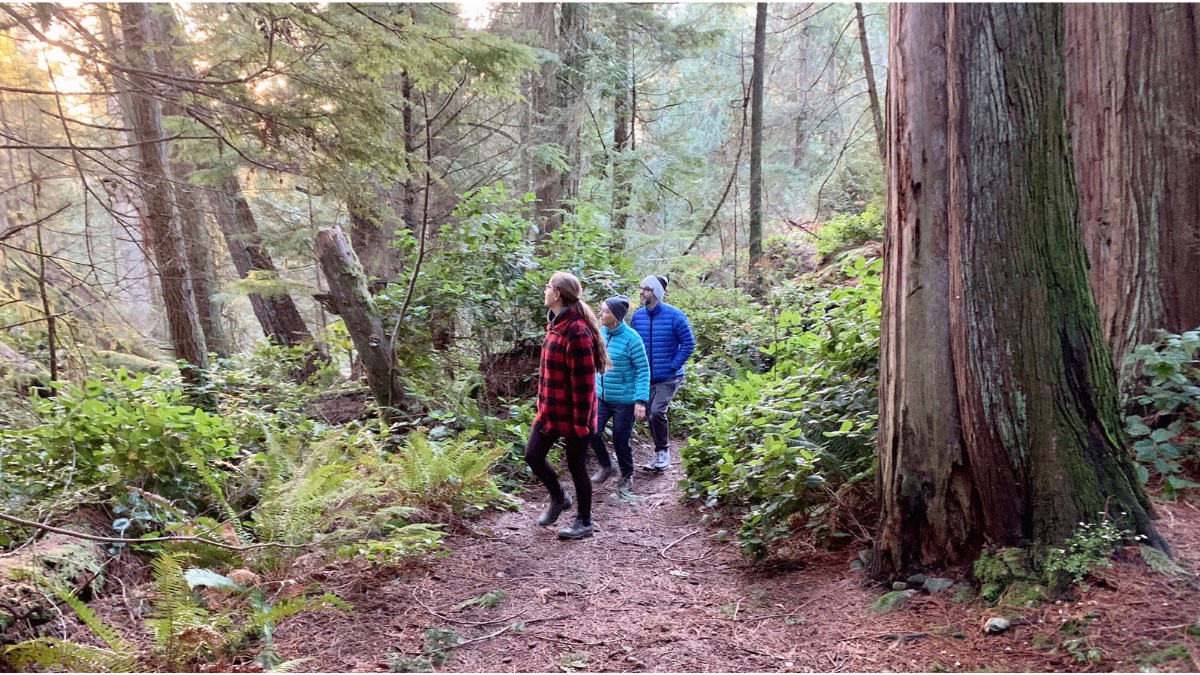
While not a venue as per se, Nature's Boardroom is a concept breathing life into micro-events and business meetings by taking groups outside and into one of nature's most loved "boardrooms" — forests. Founded by Heather Pelletier, who grew up walking in the forests near Vancouver, Canada, the concept allows event planners to turn a forest into an event venue without needing infrastructure.
Technology plays a vital role with Nature's Boardroom boasting its own app. This mobile technology enables facilitators to communicate directly with attendees who blend immersion in nature and facilitated conversations. The app can also power hybrid events by connecting up to six groups together, regardless of their location, all having similar experiences.
The total experience is a mash-up between a professional development seminar, a team-building event, and an eco-tour. The concept of nature being a teacher takes on a new shape as walks in the woods build relationships and offer a natural backdrop to explore topics like leadership, communication, wellness, and culture change.
4. EcoCamp Patagonia
Photo courtesy of EcoCamp Patagonia or Cascada Expediciones
For event planners wanting to host an off-the-radar micro-event, the world's first geodesic dome hotel and first "fully sustainable accommodation south of the Amazon," EcoCamp Patagonia, is located in the Torres del Paine National Park, Patagonia.
First opened in 2001, EcoCamp is owned and operated by adventure trip specialists and Chilean inbound tour operator Cascada Expediciones. The award-winning venue is perfect for taking visitors back to nature in the truest sense of the word, without Wi-Fi and actively enforcing a digital detox.
While this may not be a viable option for hybrid micro-events, the experience design for small groups wanting to take a break and foster connections of a different kind is endless.
This unique venue is ideal for those looking to explore pristine natural environments through safaris, trekking, hiking, biking, kayaking, and horseback riding. Relaxing activities such as yoga or massages with mountain views are also offered.
Community and connection are central to the EcoCamp experience. The community dome is where visitors can mingle or strike up a conversation with other travelers at communal tables. EcoCamp implements sustainable policies and eco-technologies while creating opportunities for local communities, preserving the region's culture, and is set to become Patagonia's zero-waste hotel.
Back to Nature
At their core, micro-events are about fostering meaningful connections in intimate environments by matching relevant content with unique and valuable experiences. By choosing a nature-based micro-events venue, planners can deliver on these micro-events traits and more.
